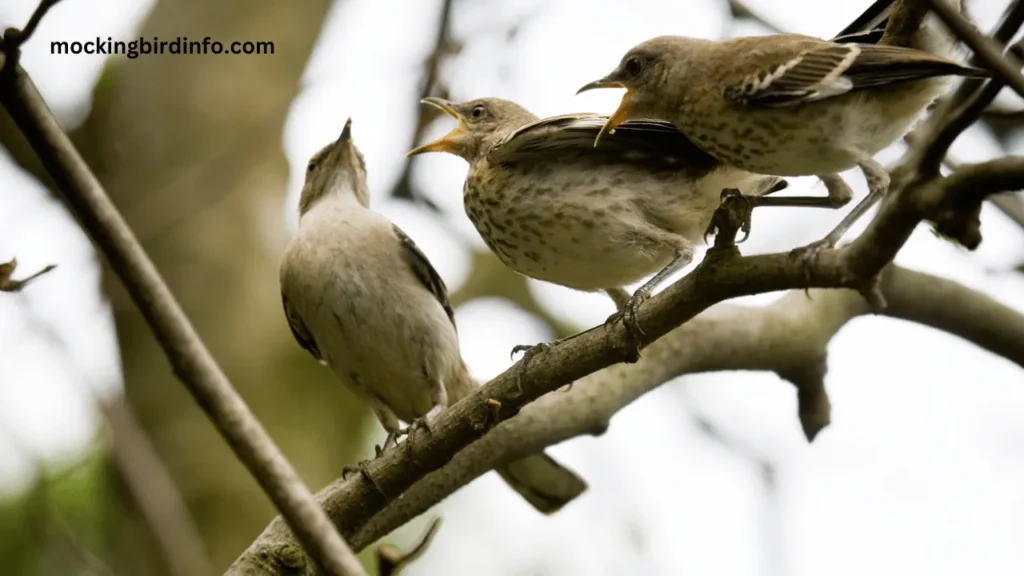On a peaceful morning, you step outside to the sound of a song so intricate and varied that it captures your attention instantly. The source? A mockingbird, perched on a branch, its feathers ruffling gently as it sings with unparalleled confidence.
Many have experienced these curious, musical visitors, but few stop to wonder about their deeper meanings. What could it mean when a mockingbird visits you, and why do these encounters often stir something deep within us?
For centuries, mockingbirds have been more than just birds. Their melodic voices and bold behaviors have inspired stories, beliefs, and interpretations across different cultures and generations. Some see them as harbingers of good news, while others believe they carry messages from beyond.
Whether you are spiritual, curious about folklore, or simply interested in the natural world, the symbolism behind a mockingbird’s visit is as captivating as its song. In this post, we’ll dive deep into the cultural, spiritual, and psychological significance of a mockingbird visit.
You’ll learn about the unique roles these birds play in various cultures, what they symbolize spiritually, and how these meanings resonate with people on a personal level. By the end, you might just view your next encounter with a mockingbird through a whole new lens.

Contents [hide]
- 1 Cultural Interpretations
- 2 Spiritual Significance
- 3 Psychological Impact
- 4 Scientific Perspective
- 5 Conclusion
- 6 FAQs
- 6.1 1. What does it mean spiritually when a mockingbird visits you?
- 6.2 2. Why are mockingbirds associated with hope?
- 6.3 3. What do Native American tribes believe about mockingbirds?
- 6.4 4. Is there any scientific proof of mockingbirds having special meanings?
- 6.5 5. Do mockingbirds mimic other bird calls for spiritual reasons?
- 6.6 6. Why do mockingbirds sometimes sing at night?
Cultural Interpretations
Mockingbirds hold a rich place in Native American culture. Different tribes regard them as symbols of protection and good fortune, believing that their songs carry messages from spirits or ancestors. They are also said to guide individuals through difficult times, offering wisdom through their varied melodies.
In Southern folklore, mockingbirds are revered as guardians and symbols of luck. They are known to protect their nests fiercely, which has led to stories of them acting as spiritual guardians for those who encounter them. If a mockingbird sings near your home, it’s often seen as a sign of impending good fortune or a spiritual blessing.
Beyond the Americas, some cultures view mockingbirds as mirrors of the human soul. In Celtic traditions, for example, birds that mimic voices are sometimes considered carriers of stories or emotions, connecting the physical world with the mystical. While not specific to mockingbirds, these beliefs add a layer of mystery to any encounter with a bird capable of mimicry.
Spiritual Significance
Many spiritual believers hold that mockingbirds are messengers from the spirit world. When one visits or sings persistently near you, it could be seen as a sign that a loved one who has passed is trying to reach out. The bird’s song, often changing tones and tunes, is thought to carry unique messages meant for the listener.
Mockingbirds are also considered symbols of hope and renewal. Their songs often mark the changing of seasons and symbolize growth and new beginnings. To hear a mockingbird sing in your garden can be a gentle reminder that life is full of cycles, and positive changes are always on the horizon.
Some people even see mockingbirds as guardian spirits. Their territorial nature and fearless protection of their nests translate into a spiritual belief that they are here to shield individuals from negative energy or harm. Encountering a mockingbird may signify that you are under the watchful eye of a protective force.
Psychological Impact
Seeing or hearing a mockingbird can trigger a range of emotional responses. For many, the encounter sparks a feeling of nostalgia, bringing back memories of childhood or simpler times spent outdoors. This emotional connection can bring comfort and joy, reinforcing a sense of peace and grounding.
On a deeper level, people often assign personal meaning to mockingbird encounters. Whether it’s because they have lost a loved one or are going through a significant life change, the presence of a mockingbird can feel like a sign. These personal interpretations are valid, rooted in our innate need to find meaning in our experiences.
This connection can be explained in part by cognitive bias, particularly confirmation bias. When we attribute symbolic meaning to an experience, we tend to look for evidence that supports our beliefs. For those who believe in the spiritual significance of mockingbirds, every visit feels intentional and filled with meaning.

Scientific Perspective
From a scientific point of view, mockingbirds are known for their mimicry. They can replicate the songs of other birds and even imitate mechanical sounds. This unique ability is primarily territorial and communicative; male mockingbirds sing to mark their space and attract mates.
No scientific evidence supports the idea that mockingbirds possess any supernatural powers or intentions. While their behavior can seem mysterious or significant, especially when they appear at pivotal moments, these instances are often coincidences shaped by our need to find patterns.
Understanding the natural behavior of mockingbirds adds an interesting layer to their symbolic interpretation. Their vocal mimicry and bold demeanor are simply part of what makes them successful survivors. They embody adaptability and resilience, traits that resonate on a symbolic level with many people.
Conclusion
Mockingbirds, with their rich cultural symbolism and intricate songs, offer more than just a pleasant encounter. Whether you view their visits as signs from the spiritual realm, symbols of hope, or simply remarkable displays of nature, these birds stir the imagination and remind us of life’s deeper connections.
The meaning of a mockingbird visit ultimately depends on your personal beliefs and experiences. Whether seen through the lens of spiritual significance, cultural heritage, or psychological interpretation, their presence is a testament to the beauty of nature’s ability to touch our lives in unexpected ways.
So the next time a mockingbird sings nearby, take a moment to listen. You may find that its song carries more than just sound—it holds a story waiting for you to discover.
FAQs
1. What does it mean spiritually when a mockingbird visits you?
A visit from a mockingbird is often seen as a spiritual sign of protection, hope, or a message from a loved one who has passed.
2. Why are mockingbirds associated with hope?
Mockingbirds symbolize hope and renewal due to their songs marking the changing of seasons and their resilience.
3. What do Native American tribes believe about mockingbirds?
Native American beliefs often depict mockingbirds as symbols of guidance and good luck, acting as messengers from the spirit world.
4. Is there any scientific proof of mockingbirds having special meanings?
No, the symbolic meaning is rooted in folklore and personal interpretation, not in scientific evidence.
5. Do mockingbirds mimic other bird calls for spiritual reasons?
While some interpret this mimicry spiritually, scientifically, it’s a behavior for marking territory and attracting mates.
6. Why do mockingbirds sometimes sing at night?
Mockingbirds sing at night during breeding season to attract mates and assert territory, showcasing their resilience and vocal abilities.








